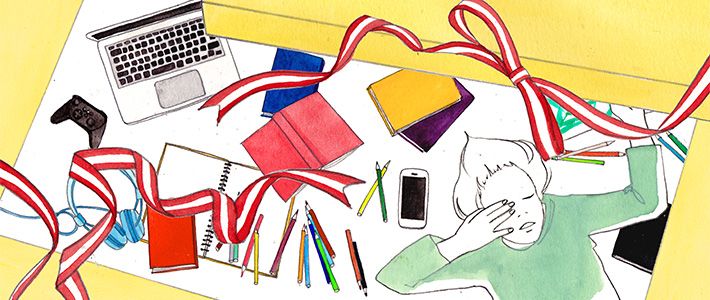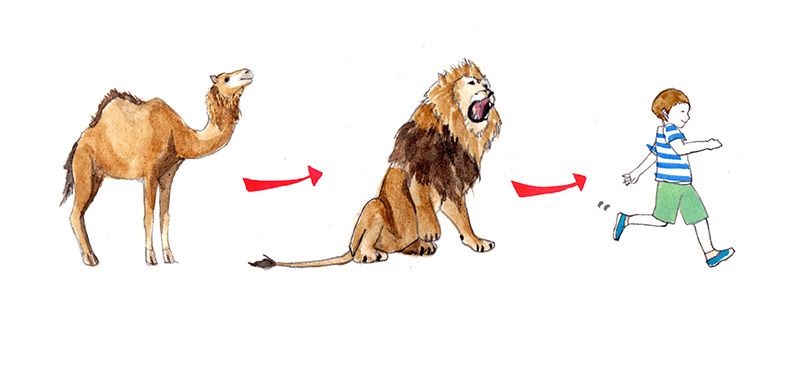
A Japanese Psychiatrist’s Takes on the Trials of Life
Reactivating the Self by Listening to the Heart
Society- English
- 日本語
- 简体字
- 繁體字
- Français
- Español
- العربية
- Русский
A Lack of Passion
In recent years we have seen a major increase in the number of people who do not know what they want to do or hope to become in the future. Ask them what they like or dislike, and many will reply, “I’ve never really thought about it, so I can’t say.”
At least until a couple of decades ago, I sensed more passion in people’s concerns. For example, they might worry that their parents did not understand them; they might feel a sense of inferiority because they could not become the sort of person they wanted to be; or they might be troubled because they could not get the recognition they wanted from others. In all these cases, they had a fervent desire for something that they could not get. But when I listen to people’s complaints nowadays, I sense little of this sort of passion. What is the reason for this change?
There is a common thread in the personal histories of these people lacking passion. Zealous parents directed their lives from an early age, filling their time with various extracurricular activities and classes, so they did not develop the habit of making their own decisions and pursuing their own desires. Faced with hurdles like choices about their career or course in life, they realize for the first time that they lack motivation. They are like a handcar moving by inertia alone that comes to a halt when it runs into a little stone on the rails.
Side-Effects of an Era of Plenty
Those earlier fervent desires were the product of a time when people were animated by “hungry” motivation. Until not long ago this was humanity’s main driving force. People energetically pursued their desires, such as for greater safety, convenience, and affluence, and achieved them step by step. And as a corollary, some people became obsessive about their unfilled desires; these obsessions were the source of passionate concerns.
Humanity is now confronted with a new situation. It is an era of plenty for many around the world, particularly in developed countries, with accelerating use of increasingly sophisticated information technology. This has made people’s lives easier and more comfortable. It has also ironically deprived them of objectives to aim for, causing them to lose momentum.
In the absence of yesterday’s hunger, people’s concerns have gradually shifted to existential matters, such as the loss of a reason for living. This may well be why we now see less passion in their complaints.
A Schedule Full of Parent-Picked Activities
Many parents who grew up in a hungrier time find it hard to detach themselves from its values. By focusing on early education, they hope to set their children up for social and economic success.
All around us we see a plethora of facilities providing instruction and activities for children of every age group from toddlers up. Many children have schedules more tightly filled than those of a businessperson. Even their rare days off are taken up with trips to resorts providing prepackaged experiences. This means that today’s children never have any genuinely free time.
Giving children enough free time to experience boredom allows them to think about how they want to play and inspires wide-ranging curiosity. Robbing them of this time makes them passive, and this tendency is exacerbated by such handy time-fillers as video games and smartphones.
Children who are not given the opportunity to decide what they want to do—living days filled with study and activities selected by their parents, and growing up surrounded by electronic devices—slowly give up on listening to their hearts. Their parents tell them the chosen activities are for their own good, and they cannot rebel. They stop expressing their individual likes or dislikes, and it comes to be too much of an effort even to feel them.
When these children get older and ask themselves what they like and what they want to do with their lives, they are shocked to find that they cannot answer their own questions. It is as if they have undergone a mental neutering.
The Importance of Saying No
Expressing refusal is the most fundamental way in which humans assert their selfhood. By saying no to those who assert control or intrude on their space, people prove their independence and take the first step toward preserving their dignity. Resistance is essential to forming a sense of self.
The defiance of children in their “terrible twos” is the first manifestation of the awakening of self. It does not matter whether a parent tells them to eat or not to eat—the answer is “No!” This is not about the desire to eat or not. It is about self-assertion through refusal to do as told.
Developing the ability to say no is also important for those seeking to recover from a state of not knowing their own wishes. When people have fallen into such a state, even if they ask themselves what they like or what they want to do, their heart is unable to come up with a response. A heart that has been forbidden to express refusal, the most basic element of individual will, cannot be expected to express likes or wishes when suddenly asked to do so.
To rouse the sense of self for the journey from a passive to an active life, people must sweep aside such instilled virtues as modesty, submissiveness, and obedience.
In the first chapter of his masterpiece Thus Spoke Zarathustra, the philosopher Friedrich Nietzsche represents stages in human growth through an allegory in which the spirit becomes a camel, the camel a lion, and the lion a child. The camel is a symbol of diligence, obedience, piety, and hard work. For us, this might conjure up the image of a mature working adult, but in Zarathustra it represents someone who is leading a passive life and has not yet achieved a sense of self.
The camel then transforms into a lion and fights to overcome the dragon named Thou-Shalt that previously controlled and directed it. The lion gives a mighty battle roar, “I will!” Having acquired active control of its life, the lion then surmounts its attachment to self, metamorphosing into a child, who symbolizes innocence, creativity, and playfulness. This is how the human spirit matures.
Unfortunately, many adults believe that the purpose of education is to produce obedient, diligent camels. Those who have as a result been ground down into a state of passivity should strain their ears to hear the muffled voice of their heart saying no, and rouse the rebellious spirit of their lion. When they are about to do something, they should ask themselves, “Am I doing this because my heart tells me I want to or because my head says I should? And if it is the latter, they should ask their heart how it feels about the action. This internal effort will show the long-neglected heart that it is respected. And it will surely allow the heart to recover its strength so that it can confidently answer the question, “What do I want?”
(The first in a four-part monthly series. Illustration by Mica Okada)